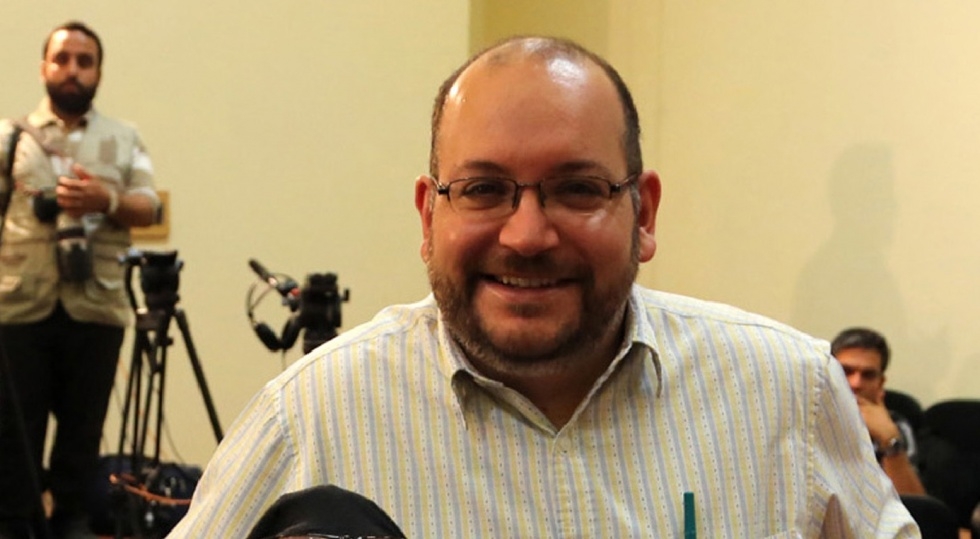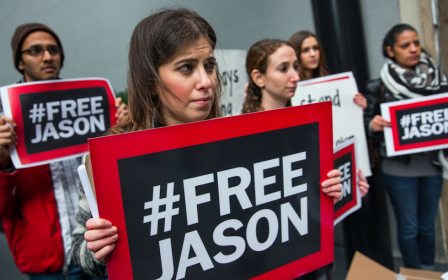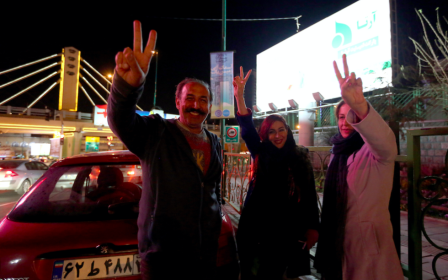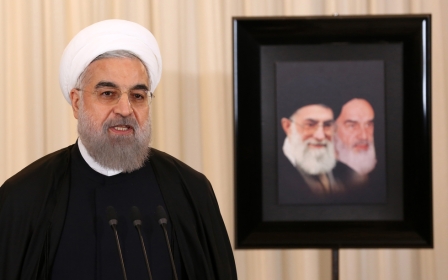Iran frees Jason Rezaian, three other dual-American citizens

Jason Rezaian, the Washington Post's Tehran correspondent, was among four Iranian-Americans freed on Saturday in a prisoner swap, as a nuclear deal with world powers edged closer to being sealed.
Iranian state television and the judiciary reported that the four were released for seven Iranians in US custody, with an official in Washington confirming the exchange.
As well as Rezaian, Iran agreed to free Saeed Abedini, a Christian pastor from Idaho, Amir Hekmati, a former US Marine, and a fourth man named Nosratollah Khosravi.
A statement from the judiciary said the swap was ordered by the Supreme National Security Council, Iran's top security committee, in line with national interests.
It took almost a year of negotiations, Iran's ambassador to the United Nations, Gholam Ali Khoshroo, told state television, with Switzerland playing an intermediary role.
"The release procedure is ongoing," he said.
A fifth American, identified as Matthew Trevitick, was also to be released as part of a different process, according to a US official.
California-born Rezaian was detained in July 2014 and later tried and convicted on charges of espionage and other crimes against national security.
His lawyer, Leila Ahsan, said she had not been told if her client was free and it remained unclear if he had left Iran.
But Naser Sarbazi, a lawyer for Abedini, jailed three years ago having been convicted of undermining national security, confirmed to ISNA news agency that his client was released.
Hekmati, a former US Marine, had been serving 10 years for cooperating with hostile governments and his family had long pled for his liberty.
It was unclear who Khosravi is and the official IRNA news agency issued an apology for having named Siamak Namazi, a businessman and dual Iranian-American arrested last year in Tehran, as the fourth man set free. IRNA later changed its report, identifying Khosravi.
The seven Iranians freed by the US are Nader Modanlou, Baharam Mechanic, Khosrow Afghahi, Arash Ghahreman, Tooraj Faridi, Nima Golestaneh, and Ali Saboonchi, according to IRNA and the state broadcaster.
Fourteen other Iranians wanted by the FBI would no longer be sought for prosecution by Interpol, a US official said.
"We offered clemency to seven Iranians, six of whom are dual US-Iranian citizens, who had been convicted or are pending trial in the United States," the official added.
The prisoner swap came as Iran and world powers led by the US were expected to implement last July's nuclear deal, which will lift international sanctions imposed on Iran.
Since his arrest in July 2014, Rezaian had become the highest-profile dual Iranian-American citizen held in Tehran's Evin Prison, particularly as nuclear talks were unfolding.
His case played out in the Iranian media, where he was accused of spying and passing information about Iran to US government officials.
He went on trial in May last year behind closed doors in Branch 15 of the Tehran revolutionary court, which usually presides over political cases or those related to national security.
His newspaper vehemently defended him, insisting the charges were a sham and saying a miscarriage of justice had taken place, alleging that Rezaian was a hostage to the nuclear negotiations.
The Post's publisher said it was waiting for confirmation that Rezaian had left Iran.
"We couldn't be happier to hear the news that Jason Rezaian has been released from Evin Prison," Frederick Ryan said.
"Once we receive more details and can confirm Jason has safely left Iran, we will have more to share," he added.
Tehran does not recognise dual nationality, and has said the cases of Rezaian and the others were a purely Iranian matter.
Among the offences he was alleged to have committed was writing a letter to US President Barack Obama.
After a trial shrouded in secrecy, Iran's judiciary confirmed he had been convicted in October last year and sentenced to jail time, but it never said how long he would be imprisoned.
There had been speculation for months that a prisoner swap could be done.
A sixth American, retired FBI agent Robert Levinson, went missing in southern Iran eight years ago. His fate remains unknown.
Middle East Eye propose une couverture et une analyse indépendantes et incomparables du Moyen-Orient, de l’Afrique du Nord et d’autres régions du monde. Pour en savoir plus sur la reprise de ce contenu et les frais qui s’appliquent, veuillez remplir ce formulaire [en anglais]. Pour en savoir plus sur MEE, cliquez ici [en anglais].




